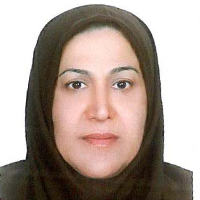The Effect of Aqueous Fruit Extract Berberis Vulgaris on The Liver and kidney Tissues of Rat’s Embryo
Considering the undesirable effects of eating some foods during pregnancy, this study investigated the effect of aqueous fruit extract of Berberis vulgarison on the development of liver and kidney.
56 female rats (188 ± 20 gram) and 8 male rats (188 ± 20 gram) were selected and fertilized. The pregnant rats were divided into the control group (without treatment), sham (received physiological serum) and 2 treatment groups and received 0.2cc of aqueous extract of Berberis vulgaris at doses of 20 and 50 mg/kg/bw ) by intraperitoneal injection daily from the 6th - 10th day of gestation. Half of the rats were dissected on 14thand 20thof pregnancy. The kidneys and livers of embryos were removed and fixed in 10% formalin. The sections (5 micron) and slides were prepared and stained. The morphometric study was conducted, and tissue changes in the micrographs were studied. The data were analyzed by ANOVA and Chi-squared test.
The significant decrease in height (P<0.01), and significant increase in weight of treatment fetus (20-day-old) were observed. The liver tissue of treatment 20-day-old fetus showed sinusoid hyperemia, vascular endothelium degeneration, reduction in the number of hepatocytes and their vacuolation. The moderate changes were observed in kidney tissue as degradation of the duct epithelium, in the 20-day-old embryos.
According to obtained finding, Barberry has negative effects in a dose- and time-dependent manner on the liver, and somewhat on kidney of fetus. Therefore, its utilization should be limited during pregnancy.
-
Exploring bat parasites in selected caves of Fars Province, Southern Iran
*, Mohammad Miri
Journal of Animal Diversity, Jun 2024 -
Correlation of sperm parameters with sperm DNA fragmentation index in infertile men candidate for fertilization by intracytoplasmic sperm injection (ICSI)
Reza Paknejad, Farangis Ghassemi *, Samaneh Zolghasri Jahromi, Masumeh Golestan Jahromi
Pars Journal of Medical Sciences,


